Search
 News
News
How Hungry Fat Cells Could Someday Starve Cancer to Death
Scientists transformed energy-storing white fat cells into calorie-burning ‘beige’ fat. News
News
International Conference Features UCSF Breast Cancer Experts
Breast cancer experts from UCSF Health will present new research and clinical findings at the annual San Antonio Breast Cancer Symposium, the world’s largest and most prestigious breast cancer conference. News
News
AI in Cancer Care, Targeted Therapies Among Cancer Conference Talks
Leading cancer researchers from UC San Francisco presented talks about advances in targeted therapies, cancer genomics, using AI to personalize cancer treatment, improving diagnosis of hard-to-treat cancers and other cancer research topics at this year’s annual meeting of the American Association for Cancer Research (AACR) conference. News
News
Predictive Biomarkers, Tailored Therapy Among Conference Presentations
UCSF’s Eric J. Small, MD, becomes ASCO president at ASCO 2025 meeting Video
Video
High Risk for Breast Cancer: Methods and Schedules to Ensure Optimal Screening
Hematologist-oncologist Elham Vosoughi, MD, starts with an update on breast cancer stats, noting that incidence in the United States is increasing by 1% every year – with an even sharper rise for women under 50. Video
Video
UCSF Cancer Grand Round Series: 2024 Best of the Year
UCSF Health and John Muir Health specialists in treatments for numerous cancers – including breast, lung, bladder and colon cancer – unpack last year's influential trials, several of which established new standards of care for specific patient populations. News
News
This AI Tool Helps Neurosurgeons Find Sneaky Cancer Cells
An AI-based diagnostic system reveals cancerous tissue that may not otherwise be visible during brain tumor surgery. Video
Video
Advances (and Uncertainties) in Oncology: Current and Future Roles of Antibody Drug Conjugates
Focusing on common bladder, lung and breast cancers, three UCSF oncologists describe how antibody drug conjugates (ADCs) are changing the treatment landscape, especially for refractory cases News
News
UCSF Health Cancer Experts Featured at Premier Cancer Meeting
Oncology specialists from around the world came together for the 2024 American Society of Clinical Oncology (ASCO) Annual Meeting to discuss the latest developments in cancer care, research, technology and education. News
News
Precision Breast Cancer Trial Shows Improved Treatment by Tumor Subtype
Despite recent advances in the treatment of breast cancer, it remains the second leading cause of cancer death in the U.S. and worldwide. News
News
Scientists Discover a New Hormone that Can Build Strong Bones
A newly discovered hormone that keeps the bones of breastfeeding women strong could also help bone fractures heal and treat osteoporosis in the broader population. News
News
Powerful New Mini Microscopic Will Enable Precision Cancer Surgery
UCSF’s Mekhail Anwar wins an up to $15 million award from ARPA-H to develop a next-generation miniature scanner powerful enough to detect individual cancer cells during surgery. News
News
Targeted Therapy, Treatment Disparity Featured at Cancer Meeting
Leading cancer researchers from UC San Francisco presented talks about advances in targeted therapy, cancer genomics, eliminating treatment disparities and other cancer research topics at this year’s annual meeting of the American Association for Cancer Research (AACR) conference... News
News
Can a New Drug Candidate Cure Pancreatic Cancer?
UC San Francisco researchers have designed a candidate drug that could help make pancreatic cancer, which is almost always fatal, a treatable, perhaps even curable, condition.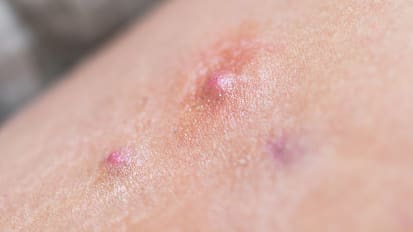 News
News
Are New Therapies on the Horizon for Painful Skin Condition?
UCSF Health leads multi-center study of chronic inflammation of the skin that affects women and people of color disproportionately. News
News
Study Finds Significant Chemical Exposures in Women With Cancer
In a sign that exposure to certain endocrine-disrupting chemicals may be playing a role in cancers of the breast, ovary, skin and uterus, researchers have found that people who developed those cancers have significantly higher levels of these chemicals in their bodies.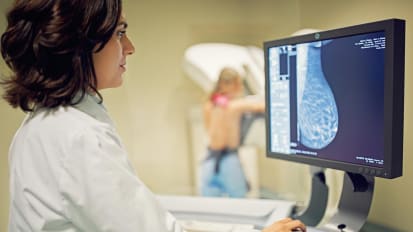 News
News
Inclusion of New Risk Factors Can Improve Prediction of Invasive Breast Cancer
UCSF researchers update Breast Cancer Surveillance Consortium model to account for BMI and other familial risk factors.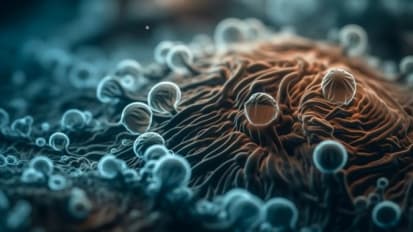 Video
Video
New Keys to Cancer Care: How 2023 Findings Impact Treatment Decisions
These four collaborative talks from UCSF and John Muir Health specialists shine a light on recent study results that should inform treatment planning for patients with a variety of GI, breast, lung and blood cancers. News
News
Can Gene Expression Predict if a Brain Tumor Is Likely to Grow Back?
Screening tumors using this new approach could change the course of treatment for nearly 1 in 3 people with meningioma, the most common form of brain tumor diagnosed in 42,000 Americans each year.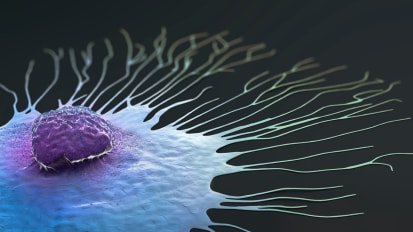 News
News
Improving Prediction of Advanced Breast Cancer Among Women of Different Races and Ethnicities
While regular screenings may decrease the chance of diagnosis of advanced breast cancer in some women and lead to a 20% reduction in breast cancer mortality, other women will be diagnosed with advanced breast cancer despite screening at regular intervals.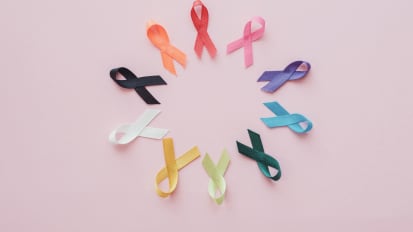 Video
Video
Focused Cancer Updates: Neoadjuvant Therapy for Breast Cancer and Managing Immunotherapy Toxicity
An expert panel delivers news to inform therapy and monitoring decisions, including a look at how the I-SPY 2 trial is accelerating evaluation of promising agents in high-risk breast cancer. News
News
UCSF Surgical Oncologists Present Clinical Findings at International Conference
The latest advances in surgical cancer care and research were showcased at the Society of Surgical Oncology’s (SSO) Annual Meeting, the International Conference on Surgical Cancer Care. The meeting was held in Boston, from March 22 – 25, 2023. Video
Video
Advances in Breast Cancer Care: Individualized Screening, Treatments and Follow-Up
Karen Goodwin, DO, covers everything from how to answer patients’ questions on mammogram frequency to how to counsel them on breast cancer prevention.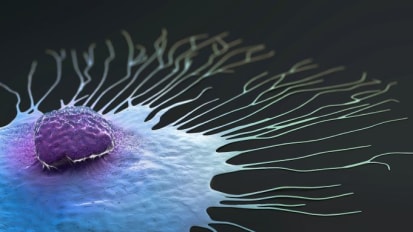 News
News
Breast Cancer Risk Calculator Can Assess Risk of Advanced Breast Cancer
Upcoming Conference to Focus on Breast Density and Prediction of Advanced and Interval Breast Cancer Risk


